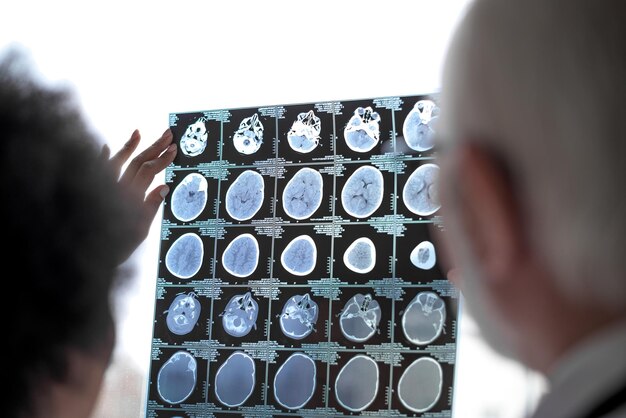Your Guide to Can You Be Tested For Parkinson's
What You Get:
Free Guide
Free, helpful information about Parkinsons FAQ and related Can You Be Tested For Parkinson's topics.
Helpful Information
Get clear and easy-to-understand details about Can You Be Tested For Parkinson's topics and resources.
Personalized Offers
Answer a few optional questions to receive offers or information related to Parkinsons FAQ. The survey is optional and not required to access your free guide.
How Do You Get Tested for Parkinson's Disease? Here's What You Need to Know
When faced with the troubling signs of Parkinson's Disease (PD)—such as tremors, stiffness, and difficulty balancing—many people find themselves wondering if there's a definitive test to clarify suspicions. Although there isn’t a single test that conclusively diagnoses Parkinson's, advances in medical assessments and symptom evaluation offer a pathway to a clinical diagnosis, helping individuals and healthcare providers navigate this challenging journey.
Understanding Parkinson’s Diagnosis
Parkinson's Disease is primarily diagnosed through a clinical examination. Neurologists play a critical role in this process, relying on detailed medical histories and a comprehensive physical examination to evaluate symptoms. Here are key components involved:
- Symptom Assessment: Doctors focus on the cardinal symptoms of Parkinson’s: tremor, rigidity, bradykinesia (slowness of movement), and postural instability.
- Medical Imaging: Tools like MRI and DaTscan—a type of imaging that visualizes dopamine transporters in the brain—can support the diagnosis by ruling out other conditions with similar symptoms.
- Responsiveness to Medications: Patients may be given Parkinson's medications to see if symptoms improve, which can be an indicator of Parkinson's.
Without a one-size-fits-all test, the experience and expertise of healthcare providers are critical in piecing together these diagnostic elements.
Seeking Support for Parkinson's Management
Upon receiving a diagnosis, patients are often concerned about managing the disease's progression and the financial burden of its treatment. Fortunately, a variety of supports are available, both medically and financially.
Medical and Lifestyle Management
- Medication: A range of medications are available to manage symptoms, including Levodopa and dopamine agonists.
- Therapy: Physical, occupational, and speech therapies can greatly enhance the quality of life.
- Lifestyle Changes: Exercise is highly encouraged, as it has been shown to improve symptoms and overall well-being.
Financial Assistance and Program Options
Navigating the cost of treatment can be overwhelming. Thankfully, numerous government aid programs and financial assistance resources exist to ease this burden:
- Medicare and Medicaid: Provide significant support for medical expenses related to Parkinson’s.
- Social Security Disability Insurance (SSDI): People who are unable to work due to Parkinson's may qualify for benefit coverage.
- Nonprofit Organizations: Foundations like the Parkinson's Foundation offer resources and sometimes financial aid to those affected.
- Community Resources: Local support groups and civic organizations can provide added assistance and a sense of community.
Explore Relief Through Credit and Education
For those feeling financial strain, it’s worthwhile to look into credit management solutions and educational grants:
- Credit Counseling Services: These can offer guidance on managing debt and improving financial health.
- Debt Relief Options: Programs are available to help negotiate lower payments or consolidate debts.
- Continuing Education Grants: For those seeking new career paths or knowledge, scholarships and grants can offer opportunities for those impacted by chronic illness.
By understanding the diagnostic process and exploring available resources, individuals with Parkinson's and their families can navigate this complex condition with more confidence and clarity. Focusing on holistic care—medical, financial, and emotional—can empower a future where Parkinson's does not define one's limits, but rather sets a new path for overcoming them.
📋 Financial Assistance and Educational Opportunities
- 🏥 Medicare & Medicaid: Health coverage for medical costs.
- 💼 SSDI Benefits: Income support for those unable to work.
- 🤝 Nonprofit Support: Resources from Parkinson’s organizations.
- 🏦 Credit Counseling: Help managing existing debts.
- 💡 Educational Grants: Opportunities for continued learning.
Securing the right blend of medical and financial support can make a significant difference in managing Parkinson's, paving the way for a proactive and supported lifestyle.
What You Get:
Free Parkinsons FAQ Guide
Free, helpful information about Can You Be Tested For Parkinson's and related resources.

Helpful Information
Get clear, easy-to-understand details about Can You Be Tested For Parkinson's topics.

Optional Personalized Offers
Answer a few optional questions to see offers or information related to Parkinsons FAQ. Participation is not required to get your free guide.


Discover More
- Are There Environmental Causes Of Parkinsons
- Can Alcohol Cause Parkinson's
- Can Concussions Cause Parkinson's
- Can Concussions Cause Parkinson's Disease
- Can Dogs Get Parkinson's Disease
- Can Dogs Get Parkinsons
- Can Dogs Have Parkinson's
- Can Dogs Have Parkinson's Disease
- Can Females Get Parkinson Disease
- Can Head Trauma Cause Parkinson's
